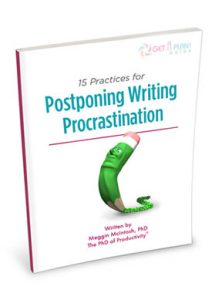What to Write About by Gini Cunningham
 Travel with notebook in hand and be on the lookout for great writing ideas. By keeping a record of potential writing topics you will never run out of material.
Travel with notebook in hand and be on the lookout for great writing ideas. By keeping a record of potential writing topics you will never run out of material.
- Look around and learn who needs your writing: a newsletter for your business, a blog for your website, your local newspaper, a magazine that deals with the topic about which you have written. Somewhere there are people just waiting to read what you have to say.
- Write letters – What an excellent way to share your thoughts and reflections with others you care about.
-
Write the story of your life – You have done remarkable things, accomplished great feats, changed the world in a unique way. It’s time to write about it. Begin at the beginning – your birth, your family, your friends. Continue with where you have lived, schools you have attended, specials places you have visited. Move grade by grade through school including teachers, friends, best memories, greatest accomplishments, and maybe a negative brush as well.
Reflect on life choices and what brought you to the place that you are today. What would you change? What has been perfect? Write and write your story. People need to know about you, what makes you tick. Plus this job is easy – you know yourself sooooo well. Oh, it does get hard at times. Thinking, reflecting, remembering, analyzing, and evaluating can be tough, tough processes. But in the end, what a masterpiece you will have created.
- Write about topics you know and love, things you want the world to act on or react to. These will just pour from your pores – you know so much!
- Write about topics that require research, interviews, or team work. When you force your mind to really think and understand, to draw conclusions and create images, you are ready to transfer great stores of knowledge to others. That does not mean to write with authority when you are bumbling through material, but rather to apply your analytical and research mind to learn so that you can support others in their learning.
- Think about 5 items that need a guide at work, at home, with friends. Create a tips booklet with information that will bring enlightenment to readers and save time in the long run. Examples: unjamming the copier while maintain grace; winterizing the boat; creating gift bags for pennies; arranging flowers and vegetables for optimal production; and eliminating “pests”.
- Look around your community for booklets that should be available: best restaurants, best places to visit, best special interest groups, best… Create a sample and discuss the possibilities with your Chamber of Commerce and community leaders.
-
Look for signs, billboards, and written notes that present funny angles. Picture these in your brain and create a short story to go with them.
Examples: (on a sign at a boat launch) Flat Wake – now a wake naturally is wavy; that’s what a wake is, so how could I make it flat? And once it is flat, how can it be called a wake?
Honor Camp: how can convicted criminals be in an honor camp? Yes, they are on their honor but what does that translate to for Honor Roll, Honorable Mention,or Honors Course?
- Use writing to explain. If you can write about something with clear details, you can be sure that you really understand the product, operation, function…
© Gini Cunningham (adapted from her book, The New Teacher’s Companion: Practical Wisdom for Succeeding in the Classroom (ASCD). In addition to her writing, Gini is an author, workshop leader, and consultant who provides education for educators. Through her consulting work, she provides (and guarantees): Full, undivided focus on your work, straightforward feedback and much more! Contact her at: gini.cunningham@sbcglobal.net
 Do you know any writers who procrastinate? Could that writer actually be you? We writers know perfectly well that we procrastinate, sometimes in very clever ways. In need of tips to help you stop? You’ll want the Get a Plan! Guide® to Postponing Writing Procrastination, part of the Get a Plan! Guides® series.
Do you know any writers who procrastinate? Could that writer actually be you? We writers know perfectly well that we procrastinate, sometimes in very clever ways. In need of tips to help you stop? You’ll want the Get a Plan! Guide® to Postponing Writing Procrastination, part of the Get a Plan! Guides® series.
Inside, you’ll find 15 practices to postpone your writing procrastination. You’ll receive the ideas and inspiration to do your work easier, faster, and in a more focused fashion.




